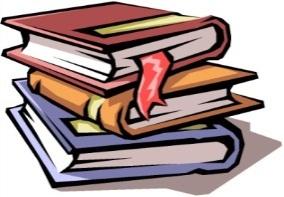
- •2Nd level – Pre-Intermediate Almaty. 2015 part II
- •1 Make questions by putting words in brackets in the right order.
- •1. Where___ your sister work?
- •Glossary
- •1. Learn by heart the poem
- •2. Part III.3. Texts for reading. Read and translate the text 1.
- •References
- •1. Where___ your sister work?
- •3. What_______ you talking about?
- •4. What does he do?
- •Glossary
- •References
- •2 Complete the questions about your brother/father with a verb in the present simple.
- •I know he is going to be successful. He is very__
- •3 He only thinks about himself
- •4 Write opposite adjective: hard-working
- •Glossary
- •References
- •1 Can you match the words to the descriptions?
- •Holidays
- •Glossary
- •References
- •Leisure time
- •Glossary
- •References
- •Glossary
- •References
- •Glossary
- •References
- •1 Put the correct article (a, an, the, or nothing) into the paragraphs below.
- •2 Choose the best two words for each sentence.
- •Glossary
- •References
- •Glossary
- •References
- •Include the information about :
- •Have you ever bought a present for birthday?
- •Verbs used with clothes
- •Glossary
- •References
- •Glossary
- •References
- •Infinitive [1, p.128]
- •The role of Internet
- •References
- •2 Match the jobs to the definitions.
- •Glossary
- •Glossary
- •References
- •Glossary
- •References
- •We are living faster, but are we living better?
- •Glossary
- •References
- •Glossary
- •References
- •1 Put in good or well.
- •Weather and climate
- •Glossary
- •References
- •2 Match the words and phrases that have the opposite meaning(Antonomy)
- •1 How can we save the environment of our city? Finish the sentences.
- •1.Animals are…
- •1 Animal parts odd one out.
- •Exercise 5 Read the first paragraph of the text and translate. [3, Topic 32, pp 169-170] celebrations and ceremonies
- •References
- •East or west, home is best.
- •Glossary
- •References
- •The homeland is more worth than gold.
- •Glossary
- •References
- •Block 1
- •Lexical grammatical tests
CONSOLIDATION.
1 Put the correct article (a, an, the, or nothing) into the paragraphs below.
1. My mother is ___ English teacher.2. I am ___student. 3. When I get home from school, I watch __ programs on TV. 4. That’s ____ best part of my day.5. I am ___ child, so I think they are funny.
2 Choose the best two words for each sentence.
1 It might be cold and wet, so take a and a . (raincoat / jumper / sunglasses / laptop)
2 It’ll be hot and sunny, so take and a . (raincoat / sunglasses / make-up / swimming costume)
3 I’m going to a smart party, so I’ll put on my and . (raincoat / make-up / swimming costume /
perfume)
4 You might get hungry, so buy some and . (sandwiches / sunglasses / biscuits / batteries)
5 I’ve got a lot of clothes, so I’m taking a and a . (handbag / backpack / suitcase / raincoat)
 DEFINING
RELATIVE CLAUSES
DEFINING
RELATIVE CLAUSESA relative clause tells us which person or thing the speaker means. To give important information about a person, place, or thing use a relative clause (= a relative pronoun + subject + verb).
Use the relative pronouns who for people.That’s the woman who wonthe lottery last year. A cook a person who works
in a restaurant .Which for things: Grace works for a company which makes furniture. Where for places: I recently went back to the town where I grew up. Use whose to mean ‘of who/of which’.A widow is a woman whose husband is dead.
You can use that instead of who or which. She is the girl who/that works with my brother. It’s a thing which/that
connects two computers.That is more usual than which, but sometimes you must use which.
 Exercise
1
Complete
with who, which, where, or whose.
Exercise
1
Complete
with who, which, where, or whose.The man whose car I crashed into is taking me to court.
a. We drove past the house_____ we used to live.
b. The girl was talking to you is the boss’s daughter.
c. The car was an invention_______ changed the world.
d. Is this the shop_______ you bought your camera?
e. What was the name of your friendwife is an actress?
Exercise 2 Look at the words in the box. Then put some of the words into categories. Use some of the words to write two or three sentences describing your library.
Library things: books, …
People: students, ….
pupils, students, librarian, library, books, newspapers, magazines, teacher, e-learning, reading card, computer, reading-rooms, special halls, children, youth, reference books, manuscripts,periodicals, newspapers, pamphlets, prints, records, tapes,
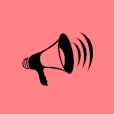 Exercise1
Listen to
the text and give True(T)
or False (F) answers. [1.T1.11
p.118]
Exercise1
Listen to
the text and give True(T)
or False (F) answers. [1.T1.11
p.118]№
T
F
a
It’s a shop where you go when you want to buy something.
b
It’s a hairdresser who works in a restaurant.
c
It’s a department store where you can buy anything
d
Mobile phone is a thing which you use to talk to people.
e
The opposite of fat is thick
Exercise 4 Retell the text using the following questions.
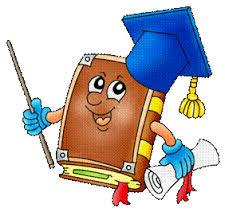
a. Who takes the food from the kitchen to the tables?
b. Where do you go when you want to buy something?
c. What do you use to talk to people?
c. How do you feel when you have a lot of work?
d. What do you do when you finish watching the TV?
Exercise 5 Read and write suitable headings to each paragraph.

AT THE LIBRARY
Libraries are very important in the life of all people. Library is a place where people can get books, periodicals, newspaper files and magazines to read there. There are librarians who can help you to find the information you need and a reading-room – a quiet place where you can work or study using library resources. Readers come to reading rooms to study and prepare material for their reports or for their scientific work. Reading rooms are open to all who wish to work there.
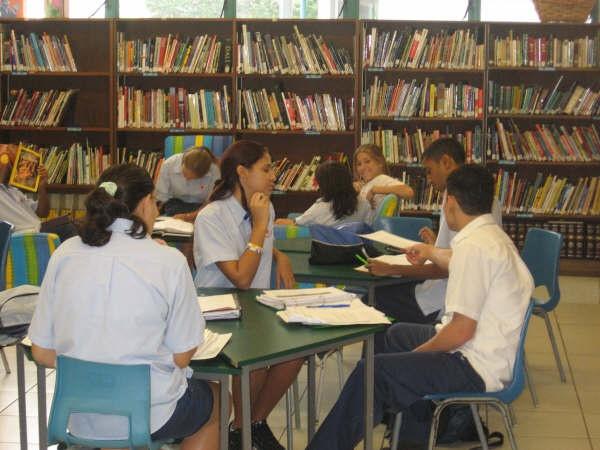
I often take books from the university library. The choice of books in our library is very good. There are many short stories and novels, textbooks and reference books, dictionaries and encyclopedias there. Our university library subscribed to several newspapers and magazines. They kept us well informed about the latest developments in this country and abroad, news in the spheres of science, art and literature. Our librarians often organize meetings with writers and poets of our city which are usually held in the library.
Although we live in the computer age, and nearly all books and periodicals can be found in the Internet. Today there are libraries in nearly every city, town or village. Schools, universities and big organizations often have one.
Exercise 6 Read the text and write suitable heading to each paragraph

Exercise7 Discuss the following points in pairs or small groups.
You are at “National library”. Think about
A service in the library
Looking for the materials you need
The importance of catalogue
The Internet instead of the library
 Exercise
8
Speak on the given topics.
Exercise
8
Speak on the given topics.
What is the role of the library in your life?
Advantages and disadvantages of the library.
Useful expressions
|
1. Once upon a time there lived a king _________ thought that he could paint very well.
a) which
b) who
c) where
d) when
2 There is a fax machine at the front desk, _______ can send and receive faxes.
a) who
b) which
c) where
d) when
3 He did not like the pictures ______ were poorly painted.
a) which
b) who
c) where
d) when
4.There is a gymnasium in the basement, _______ you can keep fit.
a) who
b) which
c) where
d) when
GLOSSARY
English
Kazakh
Russian
librarian [laɪˈbreərɪən]
кітапханашы
библиотекарь
subscribe to [səbˈskraɪb tuː]
жазылу
подписыватьсяна
scientific [ˌsaɪənˈtɪfɪk]
ғылыми
научный
fill in [fɪl ɪn]
толтыру
заполнять
content [kənˈtent]
мазмұн
содержание
purpose [ˈpɜːpəs]
мақсат
цель
manuscript [ˈmænjʊskrɪpt]
қолжазба
рукопись
records [rɪˈkɔːdz]
запись
жазба
fund [fʌnd]
қор
фонд
reference book [ˈrefrəns bʊk]
анықтама, анықтама кітабы
справочник, справочная книга
periodicals[ˌpɪərɪˈɔdɪkəl]
периодическое издание
периодикалық басылым
LIW
1. Learn by heart the poem.
What is a Book?
A book is pages, pictures and words A book is animals, people and birds A book is stories of queens and kings
Poems and songs- so many things
Curled in a corner where I can hide With a book I can journey far and wide Though it's only paper from end to end
A book is a very special friend
2. Write the students’ application form.
3. Part III.3. Texts for reading. Read and translate the text-10
Office hours
1. Grammar exercises 1d- (a,b) [3,p.126]
2.Give the definitions and examples of these phrasal verbs: look forward to, look for, look after, look up.
References:
Main literature
1. “New English File” by Clive Oxenden and Christina Koenig for Pre-intermediate level. Student’s book.Oxford University Press. 2010.
2. New Inside out by Sue Kay & Vaughan Jones for Pre-intermediate Student’s book. Macmillan, 2013
Additional literature
3. “New English File” by Clive Oxenden and Christina Koenig for Pre-intermediate level. Work book.Oxford University Press. 2010.
4. New Inside out by Sue Kay & Vaughan Jones for Pre-intermediate Work book. Macmillan, 2013
5. Романович А.Ю.,Михайлович Е.Д.BrushupyourEnglish, Устный экзамен по английскому языку без проблем. Москва 2008
6.“Essential grammar” R.Murphy. Second edition. Pre-Intermediate level. Cambridge University Press.
HAND-OUT № 41
Discipline: English as a foreign language Credits: 2
Pre-Intermediate level Practical lesson
Lexical theme: My school days.
Grammatical theme: Modal verbs must, have to
Teacher: Sariyeva Aida Kamzaevna.
WARMING UP Read and translate the saying, give equivalents in Kazakh / Russian.

“Knowledge itself is power”
CONSOLIDATION. a) Books are the most important things in out life. I prefer reading books than watching TV. Do you agree or disagree with these points?

MODAL VERBS. MUST, HAVE TO
Use Must+ Infinitive to talk about rules and obligations.
Eg. You must turn off your mobile phones before coming into class.
Use Have to + Infinitive to talk about rules and obligations or to say something is necessary.
Eg. We don’t have to wear a uniform at this school.
You can use mustn’t or can’t to talk about rules.
Eg. You mustn’t park here. You can’t smoke here.
1. Exercise 1. Complete the sentences with have to, don’t have to, or mustn’t. [1.5c, p125]
a) You _____touch those animals. They are dangerous.
b) We _____ take the bus to school. It’s too far to walk.
c) The concert is free. You _____ pay.
d) In Britain you ____ drive on the left.
e) We _____ to study tomorrow. It’s a holiday

Exercise 2. Complete the sentences with necessary words, use the pictures.
a) This is a ____, we use it to do our exercises.
b) We put a lot of things in a________
c) I am copying the English lesson on the______
d) I've bought some______ to stick things in my book.
e) We use it to sit during the classes. It is a_______
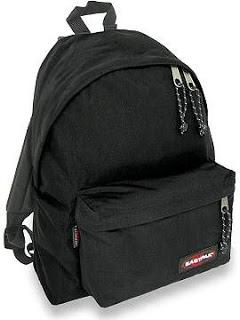
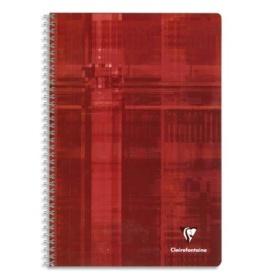
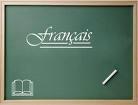
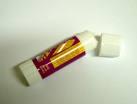
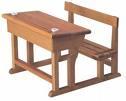
Exercise 3. Listen to Andy talking about his favorite school subject.[2.2.28]
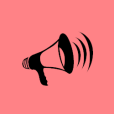
Say if you think these statements true (T) or false (F)
T
F
Art was his favorite subject
Miss Lewis had a long dark hair
They had only two hours of art each week
He wanted to be a professional photographer
He went to university and studied art
Exercise 4 Retell the listened text using the following questions
What was your favourite subject at school?
Why did you particularly like this subject?
What was the teacher’s name?
Why were her lessons special?
How many hours did you have a week?
 Exercise
5. Read
the text and translate the first paragraph.
Exercise
5. Read
the text and translate the first paragraph. 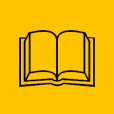
School really plays an important role in our life. We spend so much time at school that it becomes our second home. All students study for eleven years to get knowledge. And the most important role of school is giving knowledge. There are students who like studying because they are doing well in most subjects and they are going to continue their education after school, get higher education. But for those who are not successful in schooling, school becomes boring and not interesting.
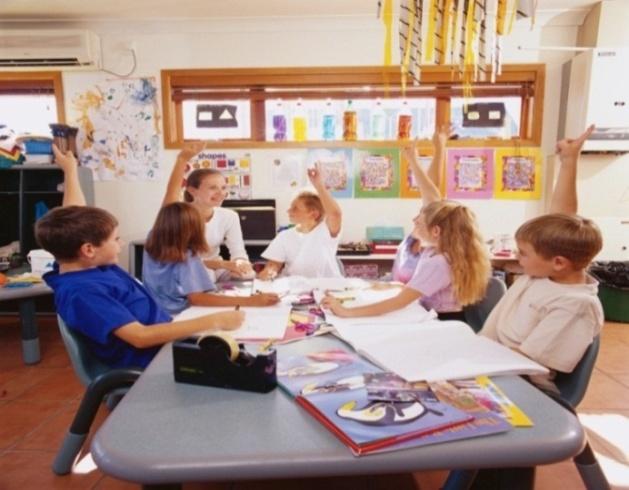
The education given at our school is of a very high standard. I'm a good student actually and I don't have many problems with schooling. I generally get on quite well with the teachers. I am quite successful in class and I usually go to school with pleasure, because I like my school and my teachers.
I think school gives me not only knowledge, it helps us understand our life better. School is a place where we create and develop our relationships, are taught to be tolerant and respect one another.
At school we can enjoy different cultural activities and show our talents. Everyone can take part in a school performance or a class party or take part in a sport competition. All this helps to create good atmosphere and relations among classmates. We want to be friends with everyone.
Exercise 6. Read the text and write suitable heading to each paragraph

Idiom. to cut school/class
MEANING: - to be absent at school without a good excuse
EXAMPLE He has bad marks due to the fact that he often cuts classes to play football with friends.
"the teacher's pet" MEANING: the teacher's favorite student EXAMPLE: My sister was always the teacher's pet when she was in the first grade at school.

Exercise 7 Speaking on the given topic. Match the words from column A with the words from column B to make phrases and then make up sentences
Eg. I usually take an active part during the lessons. (take an active part)
column A
column B
do your
pay
motivate
learn by
make
students
best
attention
progress
heart
Exercise 8. Discuss with your partner.

Read the rules at Itchen college. What rules does your college have? Do you agree with these statements?
Respect other students, even if you disagree with them or dislike them.
You have to speak only English, no other language in class or corridors
 You
have to switch
Telephones
off
in class!
You
have to switch
Telephones
off
in class!
You mustn’t Eat in classrooms
Arrive on time, if you more than 5 minutes late you must wait for the mid lesson bell (After 25 minutes).
1. You _____ to attend extra classes. It’s up to you
don’t have
must to
may
can
You _______ call your teachers by their first names.
can
must
may
mustn’t
SILENCE. Exam in progress. You ______ talk near here.
should
mustn’t
can
used to
We ______ take the bus to school. It’s too far to walk.
has
have to
don’t have to
haven’t

